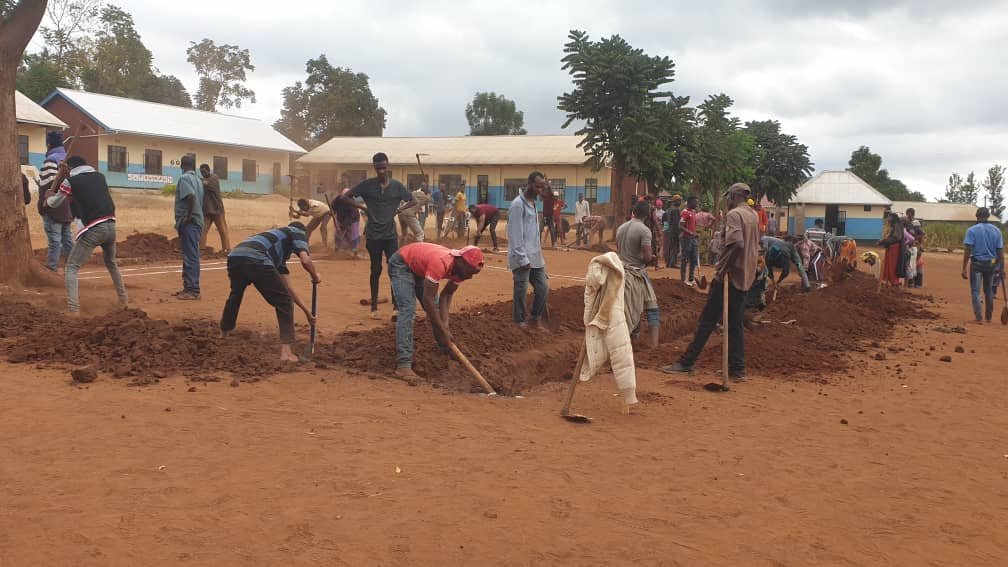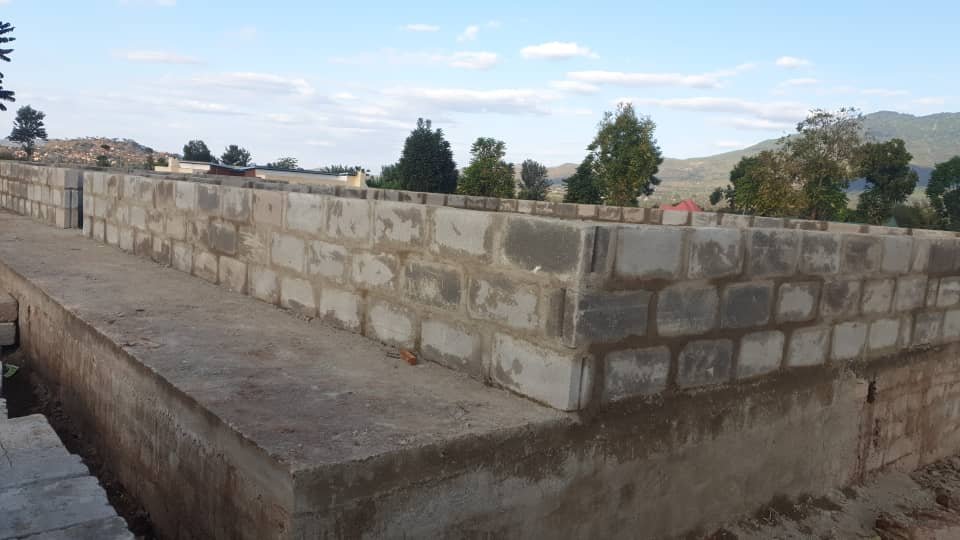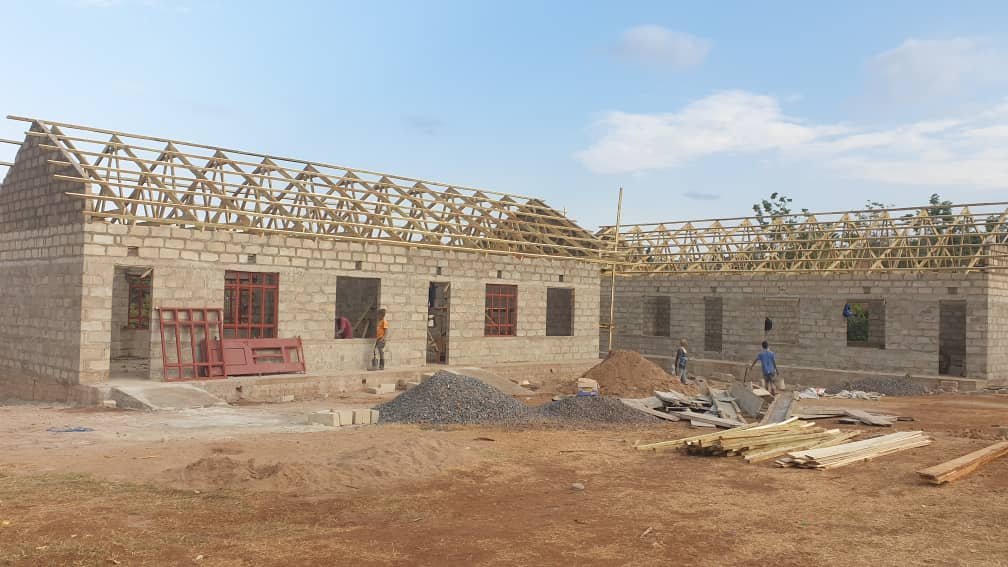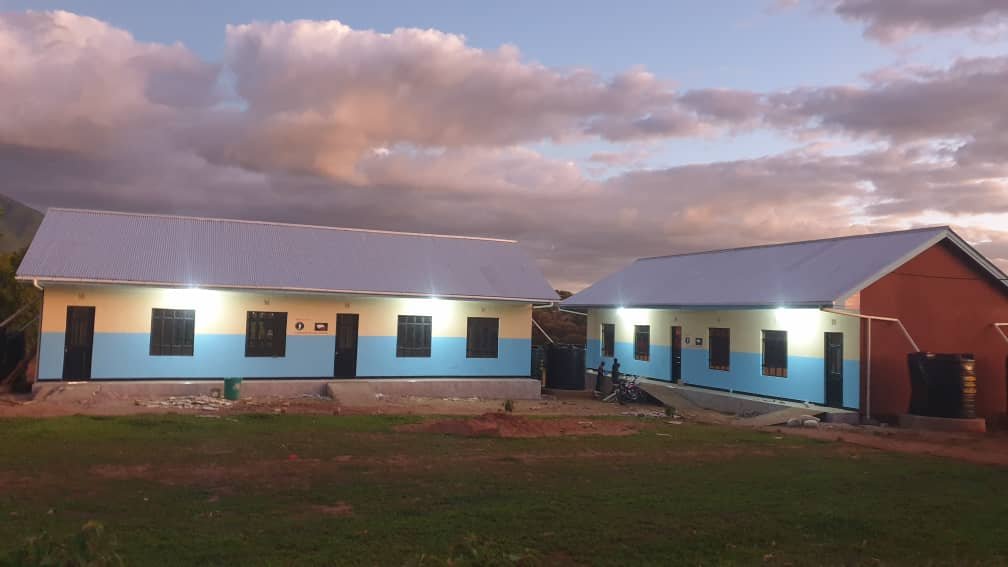Education and School Development
A quality education is one of the greatest gifts you can be given in life.
A quality education opens up opportunities in life to happiness, peace and prosperity.
In Tanzania, education starts with pre-primary (aged 5-6), followed by seven years of primary schooling all in Swahili culminating in the stand 7 exams. This is followed by 4four years of secondary, where O-Levels are taken in English, then two years in upper secondary for A-levels, college or vocational training. After upper secondary, students attend university or college.
When we explore the root causes of poor academic performance, we uncover the many challenges students face:
Some schools have teaching and learning environments that are unsafe, uninspiring, and under resourced.
Overcrowded classrooms in both primary and secondary schools due to insufficient classrooms
Insufficient teaching and learning materials make teaching and learning difficult.
Schools often have unsafe and unhygienic toilets which are a breeding ground for diseases resulting in students being fearful of using them which contributes to absenteeism, especially for young girls.
Poorly explained puberty and the stigma associated with menstruation.
A lack of lunchtime meals can result in stunted physical and cranial development, afternoon tiredness, absenteeism.
Poorly motivated and managed teachers, some of whom have to travel great distances to their schools due to lack of teachers’ accommodation.
Long distances to school can result in tiredness in class, truancy and increase the risk of physical and sexual abuse, especially for girls.
Low levels of parental interest or engagement in education.
We are working with the Town and Ward Education, Health, Planning and Community Development Officers, School Development Committees, Head teachers, students and parents to address these challenges so that the goals set by the stakeholders can be achieved.
“I was amazed to witness this tremendous level of project acceptance by not only the Community but also the Government.
This speaks of the impact of such projects, and the rigor in stakeholder engagement done by the Livingstone Tanzania Trust, in not only implementation but also planning and designing of these community projects.
Congratulations 👏👏👏
”
COMMUNITY GOALS
1
For aT LEAST 95% OF ALL PRIMARY SCHOOL STUDENTS TO pass Standard 7 by 2030
2
FOR TOILETS AT ALL SCHOOLS IN Babati TO meet the needs of ALL the users
3
FOR Babati Town Council to build a new Secondary School by 2028
Our Programmes
We invite donors to join us at the table so that together we can provide the support needed to help the community achieve their goals.
Classrooms, Offices and Kitchens
18,783 Students have benefited from an improved learning environment
Through participatory development techniques we work with the community and other stakeholders to transform dangerous, overcrowded and under resourced schools into a bright, inspirational and well resourced environment where all feel safe to teach and learn.
There are any schools within Babati, both primary and secondary, that are in need of support to either renovate, complete or build classrooms, teachers offices and kitchens with storerooms and we have priority schools should you wish to support our efforts.
Water, Sanitation and Hygiene
25,567 people have benefited from our Water, SanitatIon and hygiene Work
Sadly many of the toilets in schools in Babati are dark, unhygienic, unsafe, lack privacy, lack water, lack facilities for girls and up until recently lacked hand washing facilities.
Through our Mikono Salama (Safe Hands) Programme, we have ensured that EVERY primary school now has hand washing facilities. Read our latest report HERE
Though our Tubaki Shuleni Salama (Lets Stay Safe at School) Programme we have so far worked with 6 communities to raise awareness at community and school level on the challenges of puberty and the importance of good menstrual hygiene practices. Report HERE
Teacher Training and Development
18 Educationalists are engaged in this pilot covering 5 schools
When a school lack vision it is very hard to motivate the teachers, students and community as to what the education is trying to achieve. Through our pilot Elimisha Walimu (Leaders of Learning) Programme, Head and Deputy Head Teachers and Ward Education Officers are learning about school management and how to engage the community and the teachers in creating a vision that addresses both academic and character building qualities of their charges.
This pilot programme, in partnership with the NGO Aprender and the Babati Town Council, has the potential to be rolled out across all of Babati Town and even into the District.
Bunk Beds for Dormitories at Secondary Schools
144 BUNK BEDS HAVE BEEN INSTALLED ACROSS 4 SCHOOLS for 288 girls.
Secondary school students often have very long commutes to their nearest secondary schools, sometimes up to 90 minutes walk each way. The journey can be perilous, with snakes, hyenas and other dangerous wild animals along the way. They an also experience sexual and physical harassment and abuse. This is especially dangerous for the girls.
By providing bunk beds for dormitories built by the community with local government support, students are able to stay at school, avoid the dangerous tiring commute and spend more time on their studies.
We also provide guidance on how to develop suitable safeguarding procedures to ensure the students are protected from harm. Latest Report is HERE
Progress Report
From the graph we can deduce:
The number of schools achieving a 95-100% pass rate has fallen while the number of schools achieving 90-100% pass rate has increased to its highest levels.
There are many factors that contribute to the pass rate.
there has been a concerted effort by the town council to support and reward the teaching staff through public awards for achievements and trips to visit the local National Parks
The government has mandated communities to provide all full time students with a lunch time meal - a programme kickstarted by LTT in 2012
improved book ratios in schools
provision of teachers’ accommodation to reduce travel time, absenteeism and additional cost to teachers
improved teaching and learning environments with bigger, brighter, safer classrooms
improved sanitation and hygiene at schools for teachers and student alike
In the coming years LTT wants to focus on the worst performing schools and support them to progress up the charts. We are doing this through our teacher training programme which started in 2023 and focused on school leadership and in 2024 focused on teacher training and support. We are now in the roll out, mentoring and monitoring stage.
Partner Schools
Waangwaray Primary School
LTT’s first school where we revamped all the classrooms and built 3 more and built teachers toilets. We completed 2 teachers houses started by the community. We built a kitchen with a fuel efficient stove and started a feeding programme. We brought water and electricity to the school, and added a satellite dish, and laptops and photocopier. We build a large school farm with cows, goats, chickens, ducks and fish ponds, a farm store and office. Bee hives were installed in the local forested area and tree nurseries established.
We handed the completed school back to the community in 2018.
Gendi Primary School
This is LTT’s 5th school, renovated with full community engagement and participation. We drilled a bore hole and installed a solar powered water system that is gravity fed throughout the school along with rainwater harvesting on most of the buildings. We built a kitchen with fuel efficient stoves and food/fuel storage space. We installed a large fenced market garden with 10,000 litres water storage, drip fed vegetable plots and fruit trees. We built new toilets for students and staff.
Mutuka Secondary school
When a teacher from Waangwaray transferred to Mutuka and started to introduce some of LTT’s ideas into this secondary school we wanted to support him. We supported the transition from open fire to fuel efficiency and with the savings made he built storage shelves in his chemistry lab’s storage room. The school’s market garden, kitchen, science labs and toilets all struggled with erratic and often insufficient water so, in collaboration with the whole community and Bawasa (Babati Water and Sanitation Department), we laid fresh pipes from the source across farm lands, to the school and local homes. This significantly improved their water security and allowed us to build new toilets for the students and enabled the community to build a dormitory where we have provided bunk beds.
Ziwani Primary School
Whilst this is not a full partner school we have worked there, building brand new toilets for boys and girls and a fuel efficient stove. We are also building in 2024 an additional unisex toilet for students with disabilities to use.
Sinai Primary School
This was LTT’s second school partnership, we revamped classrooms, teacher offices and built 4 classrooms and a store. We brought water and electricity to the school, built student and teachers toilets and started a small market garden. We built a kitchen from which we started a school meals programme.
Sadly community participation fell below our required levels and we stopped working with the community and school.
in 2020 we stepped in to avoid closure of the school by supporting the community to build more student toilets after the existing ones collapsed.
Sawe Primary School
This is LTT’s 6th school development programme and the first one we built from scratch with huge levels of community engagement. In January 2024 it became the first community primary school in the whole region to have 2 classrooms for each year group. We also built student and teacher toilets, a kitchen with fuel efficient stove and store and two teachers offices. We connected the school to the local water supply but also installed 155,000 litres of water storage off the roofs of 16 classrooms. HERE is the latest report. The school was handed over to the community in March 2024 and 100% of the student who sat their National Standard 7 exams passed.
Frederick Sumaye Secondary School
As a secondary school that is fed from students from Malangi, Bambay and Gendi we have worked with this school and the community to help it improve. We started by funding a shallow borehole (the school’s water table is low due to proximity to the lake). We then supported the building of a kitchen with store and fuel efficient stoves to reduce firewood consumption. We then built the toilets for the already built dormitory building which we also fitted out with bunk beds. We have also added two additional cubicles for the girls as well as an incinerator.
Daghaloy and Harra Primary Schools
Through the Tubaki Shuleni Salama programme we built new toilets at Daghaloy Primary School. Where there was great need we have sought to support the communities to develop solutions.
Managha Primary School
This was LTT’s 3rd school where we started to change our partnership model from donor to partner, requiring the community to commit to certain standards of engagement. We revamped the whole school and built a new kindergarten and a multi-purpose room that has the potential to be a double classroom when needed.
We brought water and electricity to the school which allowed for the school to establish a market garden, and house livestock, chickens and fish pond. We established a satellite dish with laptops and a photocopier. We completed the building of one teacher’s house.
We handed the competed school back to the community in 2022
Bambay Primary School
This is LTT’s 7th partner school and has been developed with fantastic community collaboration. We started by drilling a borehole which enabled student toilets to be renovated and new teacher toilets to be built. We then built a kitchen with fuel efficient stoves and storage rooms. In December 2023 in partnership with the community we built and handed over 2 more classrooms to ease the overcrowding. You can read the report HERE
Sigino Secondary School
LTT never likes to see schools with awful toilets which is why we have also worked at this school. Not only improving the hygiene but also adding a cubicle for the girls to manage their periods in safety and with dignity.
Kiongozi Primary School
This primary school on the main road 15km to the north of Babati Town has been neglected for years, but with a new Head Teacher has come fresh impetus. The community have improved the toilets for the students and started to build new classrooms on the promise that if they build to the upper lintel, then the Government will complete them, but alas the demands on the Government cannot be stretched this far and we have been asked to step in. In March 2024 we handed over a first of these classrooms, fully fitted out with desks, books and a photocopier. In January 2025 we handed over 5 more fully fitted out classrooms.
Malangi Primary School
This was LTT’s 4th school where we improved further our participatory approach with whole community engagement. This very rural school was a failing school that was due to be closed because of the poor condition of the classrooms. We revamped 8 classrooms and built 3 new ones, added a kitchen with fuel efficient stove, teacher and student toilets. We competed the building of 2 teachers houses and built 4 more.
We built a market garden with net shading due to excessive heat and 40,000 litres of rainwater harvesting.
We handed the completed school back to the community in 2022
Maisaka and Hangoni Primary Schools
Whilst not partner school we completed 2 ‘bomas’ at Maisaka Primary School. A ‘boma’ is a classroom built to the lintel level by the community in the hope that Central Government will fund the rest). We also built a kindergarten at Hangoni Primary School.
Sometimes these one off construction projects take priority over partner schools because the impact of the work is that much higher.
Babati Day Secondary School
At the behest of the Head Teacher, LTT visited this secondary school and witnessed the poor state of the toilets, especially the girls toilets. Door were missing, so were hand washing facilities and there was nowhere for girls to manage their periods. With 500 girls using just 8 working yet unsanitary cubicles, and after consultation with both the girls and the boys we agreed to support them. The new girls toilets were completed by the end of April 2024 and the boys toilets were completed in September 2024. The impact has been significant in that zero students now go to hospital each week (previously 10) with toilet hygiene related issues. Student have the freedom to eat and drink as they need without fear of using the toilets.
Kwara and Kwaang Secondary Schools
Seeing the quantities of firewood being consumed by open fires at these two schools prompted us to take immediate action. At Kwara we build a kitchen and firewood store, while at Kwaang we added fuel efficient stoves. At Kwara we also supported the addition of a satellite dish.




























